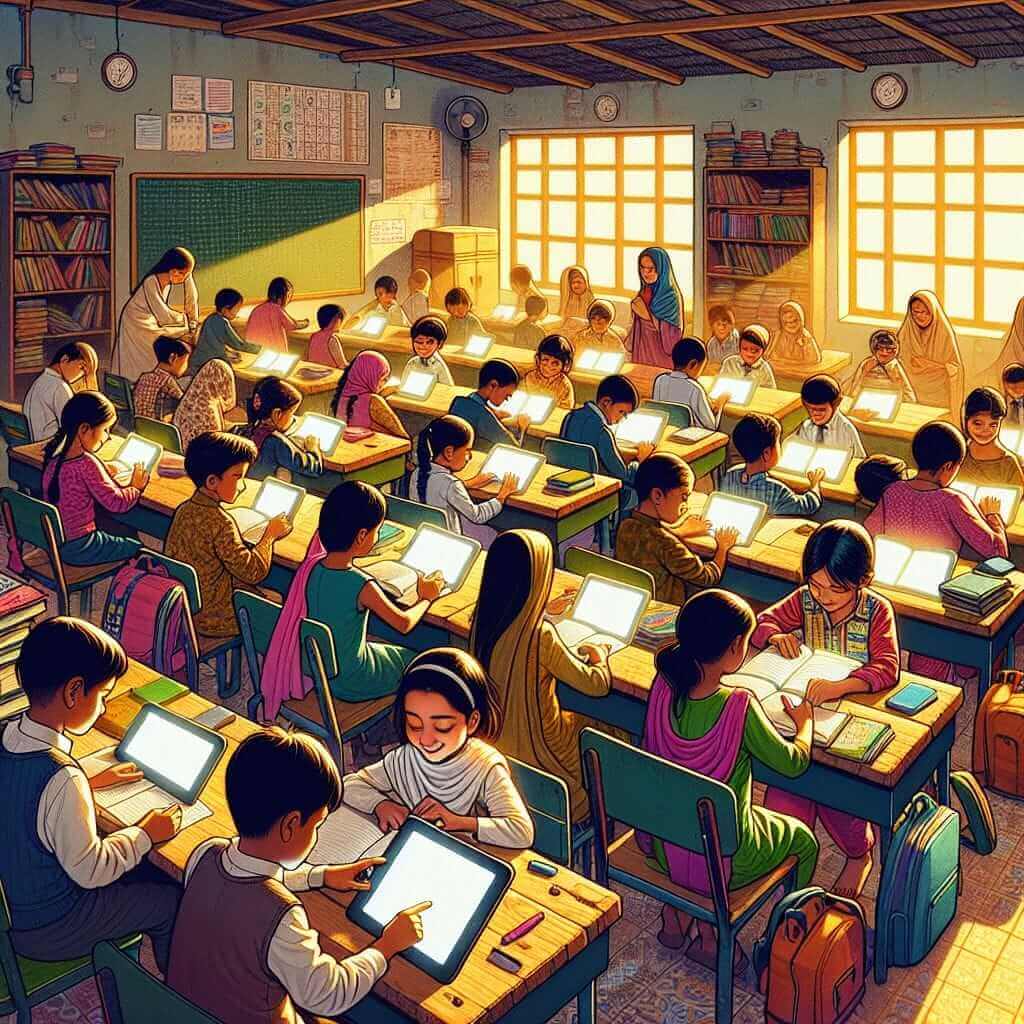The IELTS Reading test can be particularly challenging due to its variety of topics and question types. One common topic that has appeared in past IELTS exams is the impact of the digital divide on education in developing countries. This issue has gained increasing relevance over the years, as digital technology becomes more integral to education. Understanding this topic can be beneficial for IELTS candidates, both for reading comprehension and broader contextual awareness.
The digital divide refers to the gap between those with ready access to digital and internet technologies and those without. This divide has significant implications for educational opportunities, particularly in developing countries. In this article, we will delve into a reading passage on this topic, provide questions based on the IELTS format, and offer detailed answers and analysis.
Reading Passage
Digital Divide and Education in Developing Countries
The digital divide is a complex and multi-faceted issue that significantly affects the quality and accessibility of education in developing nations. With advancing technology transforming education systems worldwide, those without access to digital tools and the internet are increasingly disadvantaged.
In many developing countries, educational institutions lack the necessary infrastructure to support digital learning. Limited access to the internet, insufficient digital devices, and a shortage of trained educators who can integrate technology into the curriculum are prevalent problems. This absence of digital resources exacerbates existing educational inequalities, leaving a considerable number of students behind.
Moreover, the digital divide impacts more than just academic performance; it influences future career opportunities. In the global job market, digital literacy is becoming essential. Without access to proper digital education, students in developing countries are at a significant disadvantage compared to their peers in developed nations, contributing to a persistent cycle of poverty.
Efforts to bridge this divide are underway, with various international organizations and governments investing in digital infrastructure and training programs. Nevertheless, systemic barriers such as economic constraints, political instability, and logistical challenges continue to hinder progress.
One successful initiative includes the introduction of affordable and sustainable technology solutions tailored to the specific needs of developing regions. For example, solar-powered tablets and offline digital libraries have been employed in remote areas, providing students with access to educational materials without needing constant internet connectivity.
In conclusion, while notable efforts are being made, the digital divide remains a critical barrier to educational equity in developing countries. Ensuring that all students have access to digital tools and resources is essential for fostering an inclusive and globally competitive education system.
IELTS Reading Questions
Question Set for Medium Text
Multiple Choice Questions
-
What is the primary focus of the passage?
A. The history of the digital divide
B. The benefits of digital education in developed countries
C. The impact of the digital divide on education in developing countries
D. The future of digital technology -
According to the passage, what is one main consequence of the digital divide in education?
A. Increase in school dropout rates
B. Better quality of education
C. Greater employment opportunities
D. Limited future career prospects
True/False/Not Given
- The digital divide only affects the quality of education in urban areas of developing countries.
- Solar-powered tablets are mentioned as a solution to the digital divide.
Matching Information
- Match each problem with its description:
i. Infrastructure issues
ii. Economic barriers
iii. Technological literacy- A. Lack of trained educators
- B. Financial constraints hindering access to technology
- C. Insufficient digital devices
Answer Key
-
C. The impact of the digital divide on education in developing countries
- Explanation: The passage primarily discusses how the lack of digital access affects education in developing nations.
-
D. Limited future career prospects
- Explanation: The text mentions that without access to digital education, students in developing countries face significant disadvantages in the global job market.
-
False
- Explanation: The passage discusses the impact of the digital divide on education in both urban and rural areas of developing countries.
-
True
- Explanation: The passage includes solar-powered tablets as an initiative to address the digital divide.
-
- i. C. Insufficient digital devices
- ii. B. Financial constraints hindering access to technology
- iii. A. Lack of trained educators
Vocabulary
- Divide (noun): /dɪˈvaɪd/ – a separation between two groups.
- Infrastructure (noun): /ˈɪnfrəˌstrʌktʃər/ – the basic physical systems of a business or nation.
- Exacerbate (verb): /ɪɡˈzæsərbeɪt/ – to make a problem worse.
- Persistent (adjective): /pərˈsɪstənt/ – continuing to exist or occur over a prolonged period.
- Sustainable (adjective): /səˈsteɪnəbl/ – capable of being maintained at a steady level without exhausting natural resources.
Grammar Note
Complex Sentences
- Definition: Complex sentences combine an independent clause with one or more dependent clauses.
- Example: Although financial constraints hinder access to technology, various initiatives are mitigating the impact.
Conclusion and Tips
To excel in the IELTS Reading section, it is crucial to:
- Practice regularly with diverse topics to broaden your vocabulary and comprehension skills.
- Time yourself to get accustomed to the test’s time constraints.
- Analyze your mistakes to understand where you need improvement.
By focusing on these strategies and familiarizing yourself with topics like the digital divide in education, you can improve your reading skills and increase your chances of achieving a higher score.

By understanding and practicing these concepts, you are one step closer to mastering the IELTS Reading section. Happy studying!